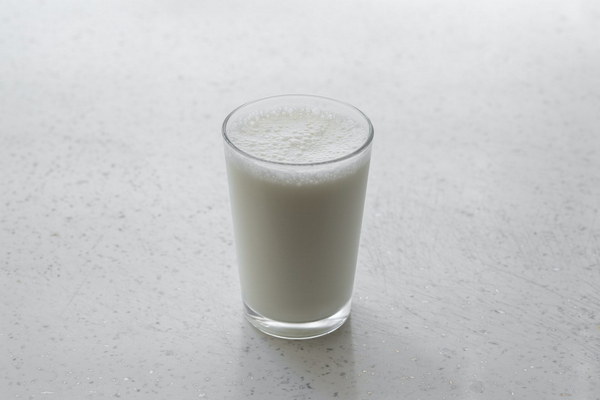Nourishing the Female Stomach A Comprehensive Guide to Womens Digestive Health
In a world where the hustle and bustle of daily life often takes precedence over personal health, it's no surprise that women often find themselves struggling with digestive issues. However, taking care of your stomach is crucial for overall well-being. Here's a comprehensive guide to help women nourish their stomachs and improve their digestive health.
1. Eat a Balanced Diet
A balanced diet is the cornerstone of good digestive health. Women should aim to include a variety of foods in their diet, such as fruits, vegetables, whole grains, lean proteins, and healthy fats. These foods provide essential nutrients that support the digestive system and keep your stomach happy.
- Incorporate fiber-rich foods like apples, berries, leafy greens, and legumes to promote regular bowel movements and prevent constipation.
- Choose whole grains such as brown rice, quinoa, and oatmeal for sustained energy and improved gut health.
- Include lean proteins like chicken, fish, and tofu to support muscle growth and repair, as well as aid in digestion.
- Consume healthy fats from avocados, nuts, and olive oil to support the absorption of fat-soluble vitamins and promote satiety.
2. Stay Hydrated

Proper hydration is essential for maintaining a healthy digestive system. Drinking plenty of water throughout the day helps keep the digestive tract moving smoothly and prevents constipation. Aim to drink at least eight glasses of water daily, and adjust your intake based on your activity level and climate.
3. Manage Stress
Chronic stress can disrupt the delicate balance of your digestive system, leading to issues like bloating, constipation, and diarrhea. Practice stress-reducing techniques such as mindfulness meditation, deep breathing exercises, and yoga to keep your stomach happy.
4. Avoid Overeating and Eating on the Go
Eating large meals or rushing through meals can lead to digestive discomfort and inefficiency. Try to eat smaller, more frequent meals throughout the day, and take the time to savor each bite. This allows your stomach to process food more effectively and reduces the risk of bloating and indigestion.
5. Limit Processed Foods and Sugary Drinks
Processed foods and sugary drinks are high in unhealthy fats, sugars, and artificial ingredients that can irritate your stomach and hinder digestion. Limit your intake of these foods and opt for healthier alternatives like whole fruit instead of fruit juices and water or herbal teas instead of sugary drinks.
6. Get Regular Exercise
Regular exercise can help keep your digestive system functioning optimally. Physical activity increases blood flow to the digestive tract, which can help improve absorption and reduce bloating. Aim for at least 30 minutes of moderate exercise most days of the week.
7. Consider Probiotics
Probiotics are beneficial bacteria that support gut health. They can be found in foods like yogurt, kefir, and fermented vegetables, or taken as a supplement. Probiotics can help restore the balance of good bacteria in your gut, which can improve digestion and reduce the risk of digestive issues.
8. Consult a Healthcare Professional
If you're experiencing persistent digestive issues, it's important to consult a healthcare professional. They can help identify underlying causes and recommend appropriate treatments to improve your digestive health.
In conclusion, women can improve their digestive health by following a balanced diet, staying hydrated, managing stress, avoiding overeating, limiting processed foods, getting regular exercise, considering probiotics, and seeking professional advice when necessary. By taking these steps, women can nourish their stomachs and enjoy better overall well-being.









